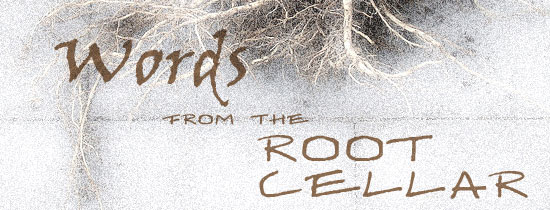Chicken Butchering and MBAs
by Axie Barclay
My boyfriend, ahem ex-boyfriend, and I got into a, ahem, discussion the other day about butchering chickens. We butcher a few on our homestead every year and this year was more of a production than most, so we paid the friends and neighbors who helped us process chickens for eight hours on a Saturday with a couple chickens apiece. My ex argued that paying them in birds cost us money. I argued that if we don’t pay them, we don’t have help. But, he said, if every chicken pays for a bag of feed, you just cut into your bottom line and your profit.
I’ve always thought business was full of ugly words like this, profit margin, bottom line, production assembly, QuickBooks. And even coming gracefully out of his mouth, whispered in my ear like sweet nothings of pillow talk, I still didn’t like them.
“Well,” I said smoothly (I thought), “we could not pay them at all and then no one would show up to help on butcher day. Would that make it better?”
After doing a lot of thinking and tossing and turning at night on this question, I decided that the reason business lingo sounds do dirty is that it’s so divorced from reality. “Profit margin” doesn’t really capture the early mornings Dad spent getting up and feeding our ravenous Cornish Cross roosters or relate the grazing pattern we implemented this year with the cows or communicate just how tired we all were when all that was left of Butcher Day was a freezer full of chicken and a pile of feathers. It certainly doesn’t contain the hard work of and our gratitude toward the community who helped us set up our butcher area, wrangle birds into kill cones, breathe the stink of wet feathers and scalded flesh, and learn how the oil sac comes off best and how one smooth motion of a knife removes a gall bladder and other organs all at once.
The interesting thing about butchering on the farm is that it’s not about death, as some people ask. “Doesn’t it bother you to, ya know, kill things?” Humans have been killing to eat since they stopped eating maggoty carcasses of road kill, around the time of the invention of the spear point. That kill-or-be-killed mentality has diluted only recently and while it’s not anyone’s favorite part of farming or eating, the interesting part is that it’s so social. From deer hunting to chicken butchering, if we’re processing meat, people tend to show up. We work and we laugh and by the end of the night, you know who your friends are. Home butchering has always involved this facet of interaction, entire villages and communities or just families gathering together to ease the workload. My grandmother tells stories about butchering hogs and how the smell of rendering lard made her sick, but at the same time she’ll talk about how she learned so much from my grandpa’s family and wonderful details about the Barclay women and how they used to do things. Its priceless knowledge and I often realize how lucky I am to have it. How many people can peaches with their grandmother anymore and listen to her stories?
Food and stories are so basic, but as food becomes more industrialized, interpersonal interaction reduces, at least as far as I can tell. Sustainable agriculture and local agriculture don’t just benefit the food system, but the cultural part of agriculture. If you nurture a plant or stock or even partially stock your own pantry, even if it’s with food someone else grew, you can still benefit from the culture, trading stories and sharing laughs with people who appreciate the same things in life as you do. The oral tradition gave us some of the most influential stories in human history: Beowulf, The Odyssey, The Illiad, and others. They captured the rules of how to behave for a culture. For instance, if a beautiful woman captures you on her island, make sure you pay her compliments or she’ll turn your crew into pigs. While these are formal stories, other stories, family stories, get passed down much the same way. Their importance, for all of being little stories, is vital to people, helping them see where they came from and how to find their way in the world. Without these stories, which contain a code of behavior that is more immediate than Circe and Grendal, people can struggle, or feel cut adrift. Family, after all, is the longest and biggest story of all.
So, in the end, my ex might be right, giving chickens away might cut into my bottom line.
Ask me at the end of the day if I give a darn.
*Author’s Note: Boyfriend in question was not dismissed for reasons mentioned in this article. Reconciliation actions are in progress. The term “ex” has been retained for comedic purposes for the use of this article only.
 Axie Barclay is a Michigan writer with a cow-habit. Having discovered the joys and potential for growth in alternative agriculture, she quests ever longer and harder for ways to combine farming and writing into a business. When not milking cows, making disgruntled noises at the latest disgusting thing the heeler dogs dredge up, riding horses, or keeping the fence up around her small beef herd, she’s holed up reading an eclectic array of books or tapping out pages. When not working, she enjoys kicking back with her honey, family, and friends at a bonfire with some beers. Chat her up on Twitter and Facebook, /axieb, or http://barclayfarmsandlit.blogspot.com where she delves into literature and agriculture with a relish… and occasionally ketchup. Soon to be homemade.
Axie Barclay is a Michigan writer with a cow-habit. Having discovered the joys and potential for growth in alternative agriculture, she quests ever longer and harder for ways to combine farming and writing into a business. When not milking cows, making disgruntled noises at the latest disgusting thing the heeler dogs dredge up, riding horses, or keeping the fence up around her small beef herd, she’s holed up reading an eclectic array of books or tapping out pages. When not working, she enjoys kicking back with her honey, family, and friends at a bonfire with some beers. Chat her up on Twitter and Facebook, /axieb, or http://barclayfarmsandlit.blogspot.com where she delves into literature and agriculture with a relish… and occasionally ketchup. Soon to be homemade.

